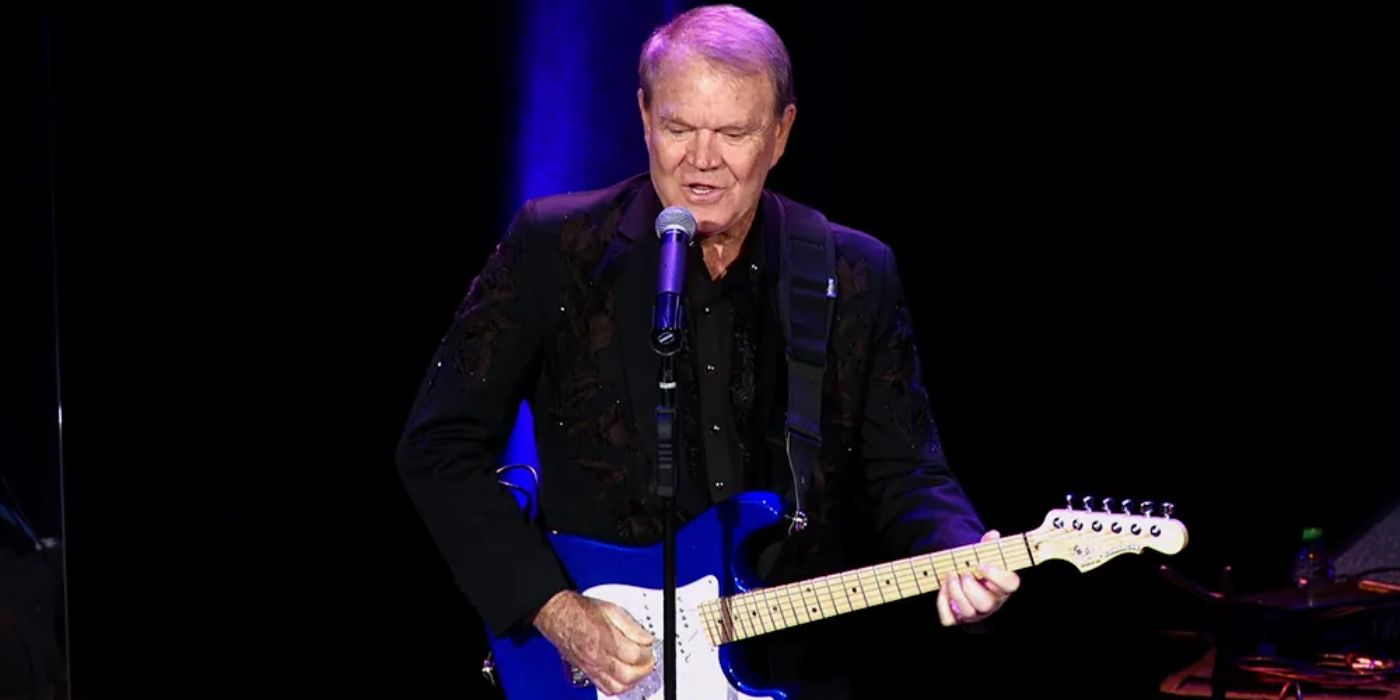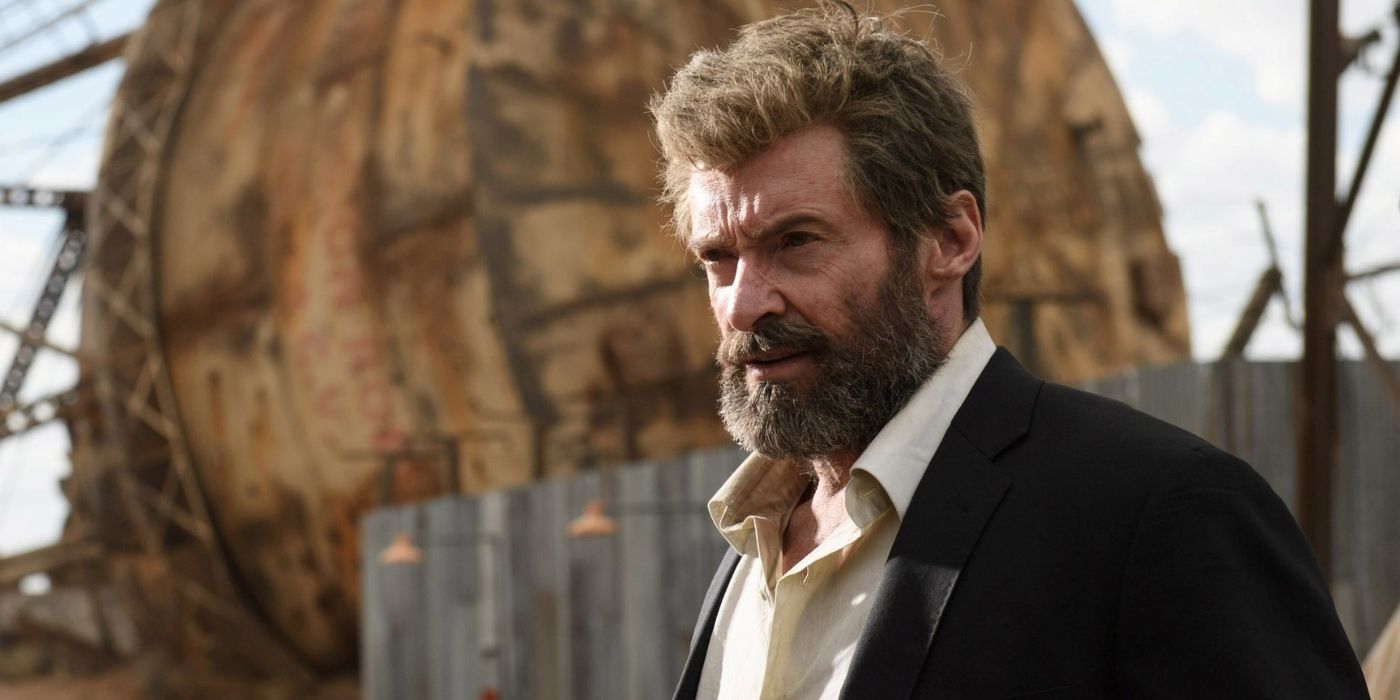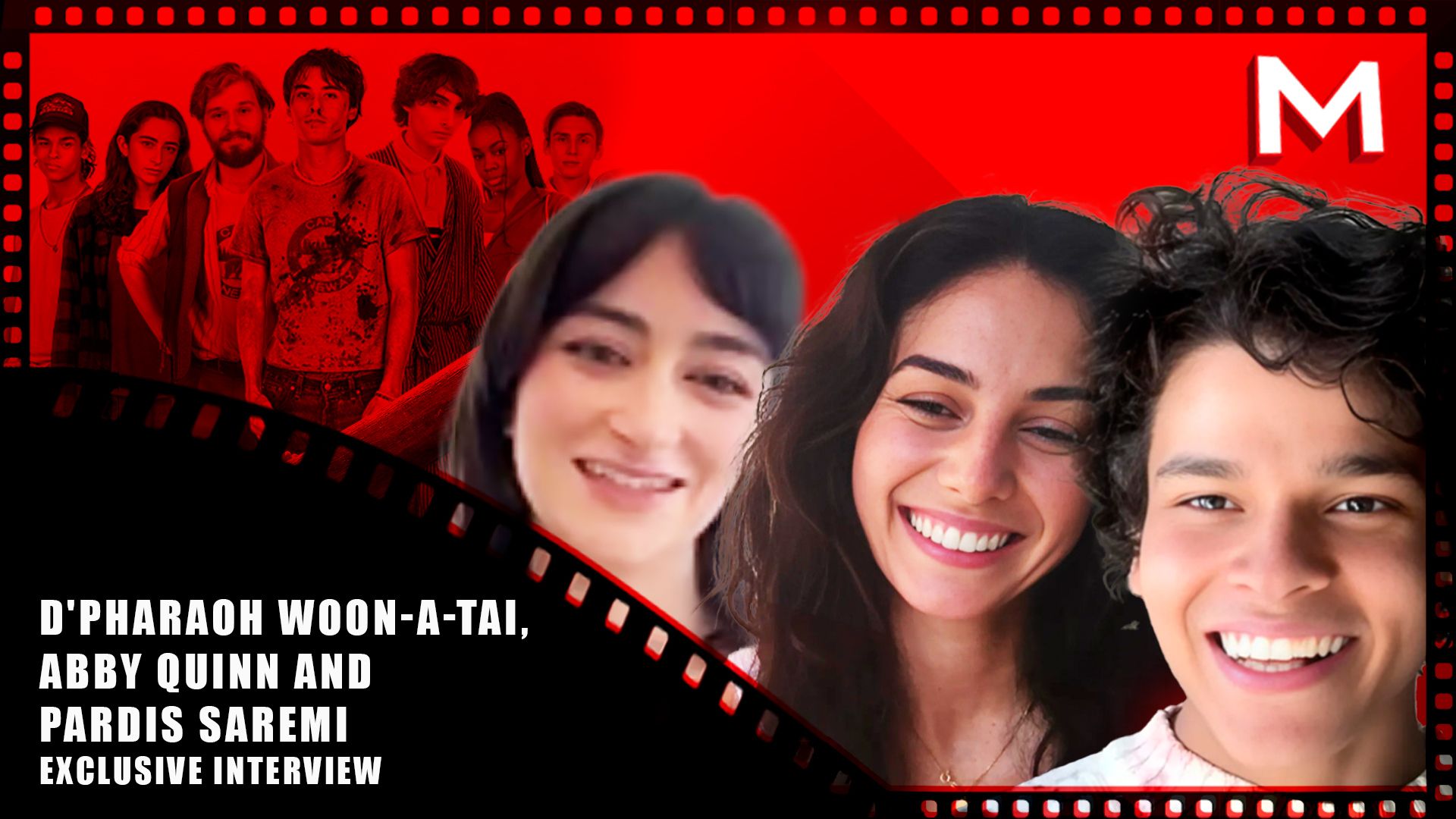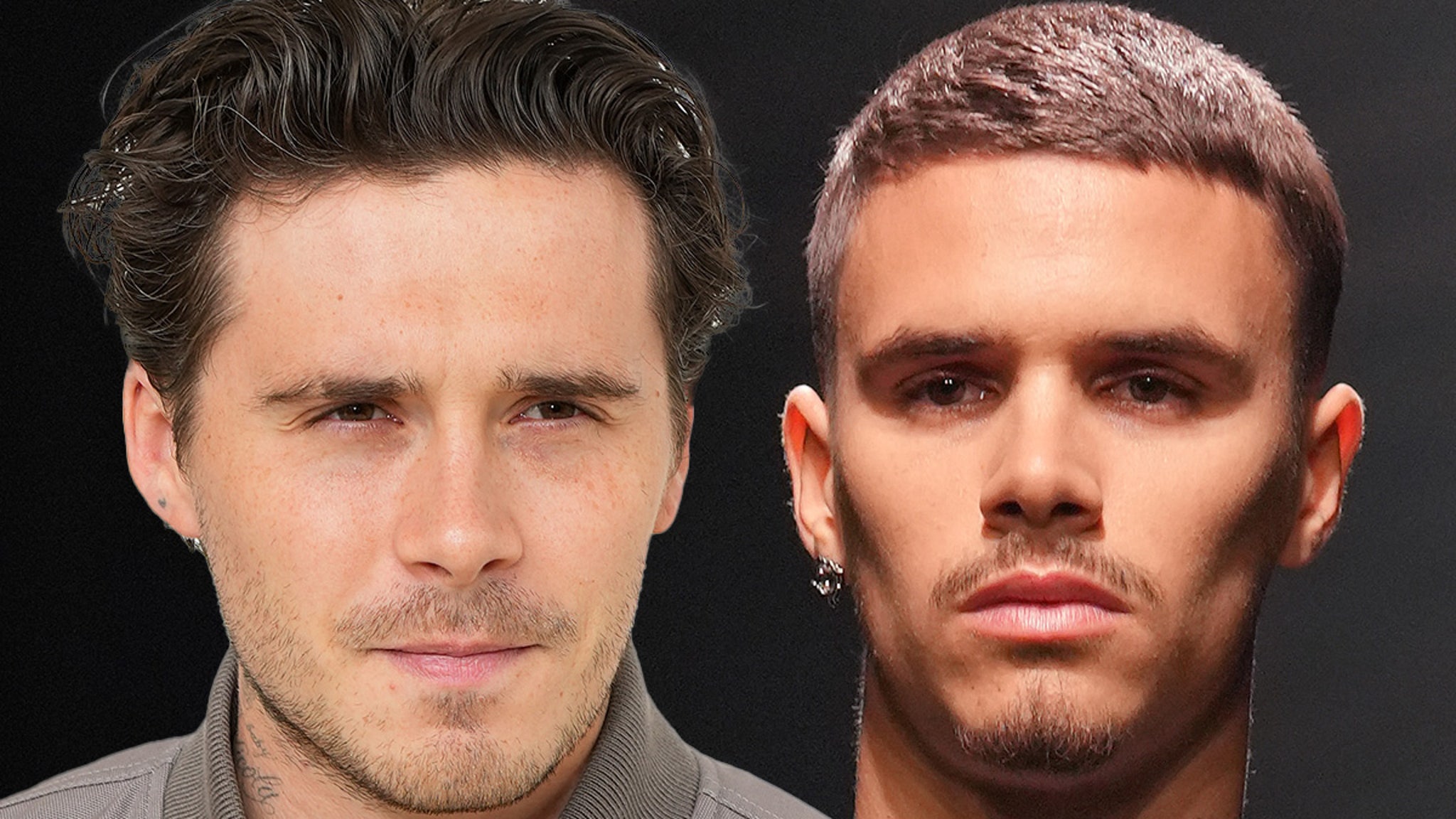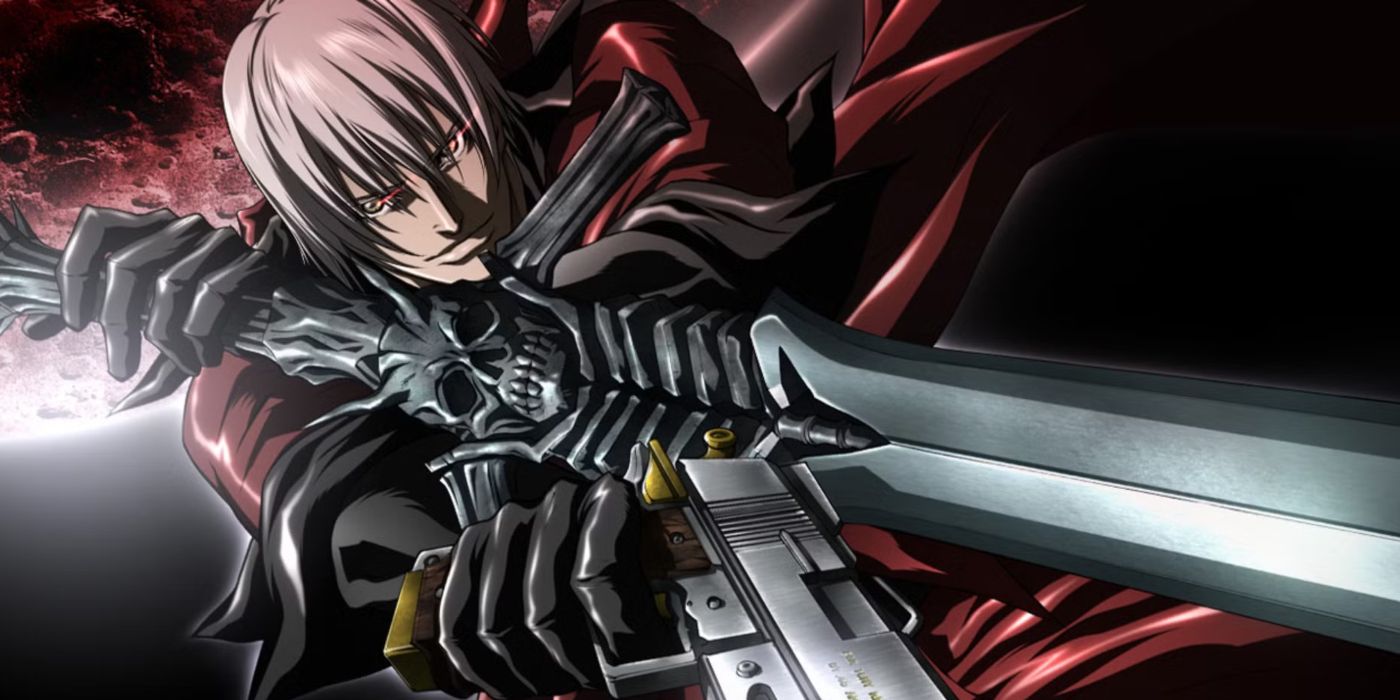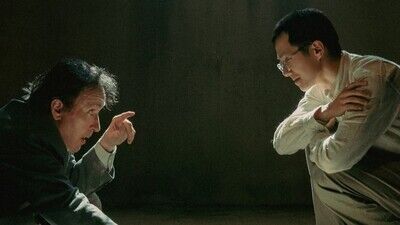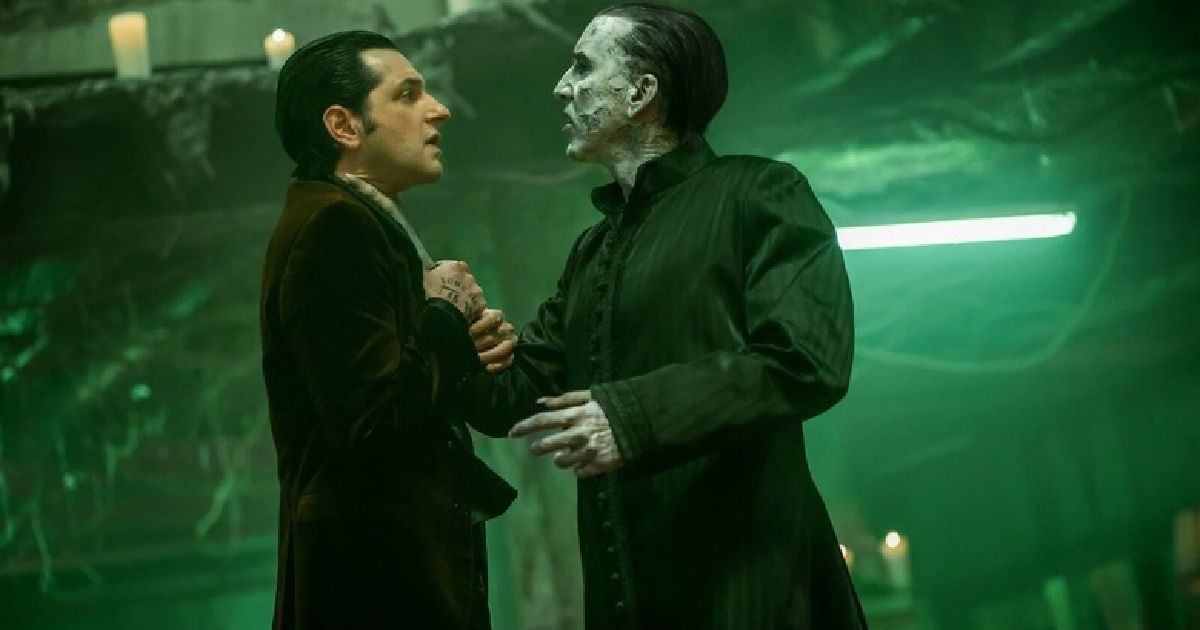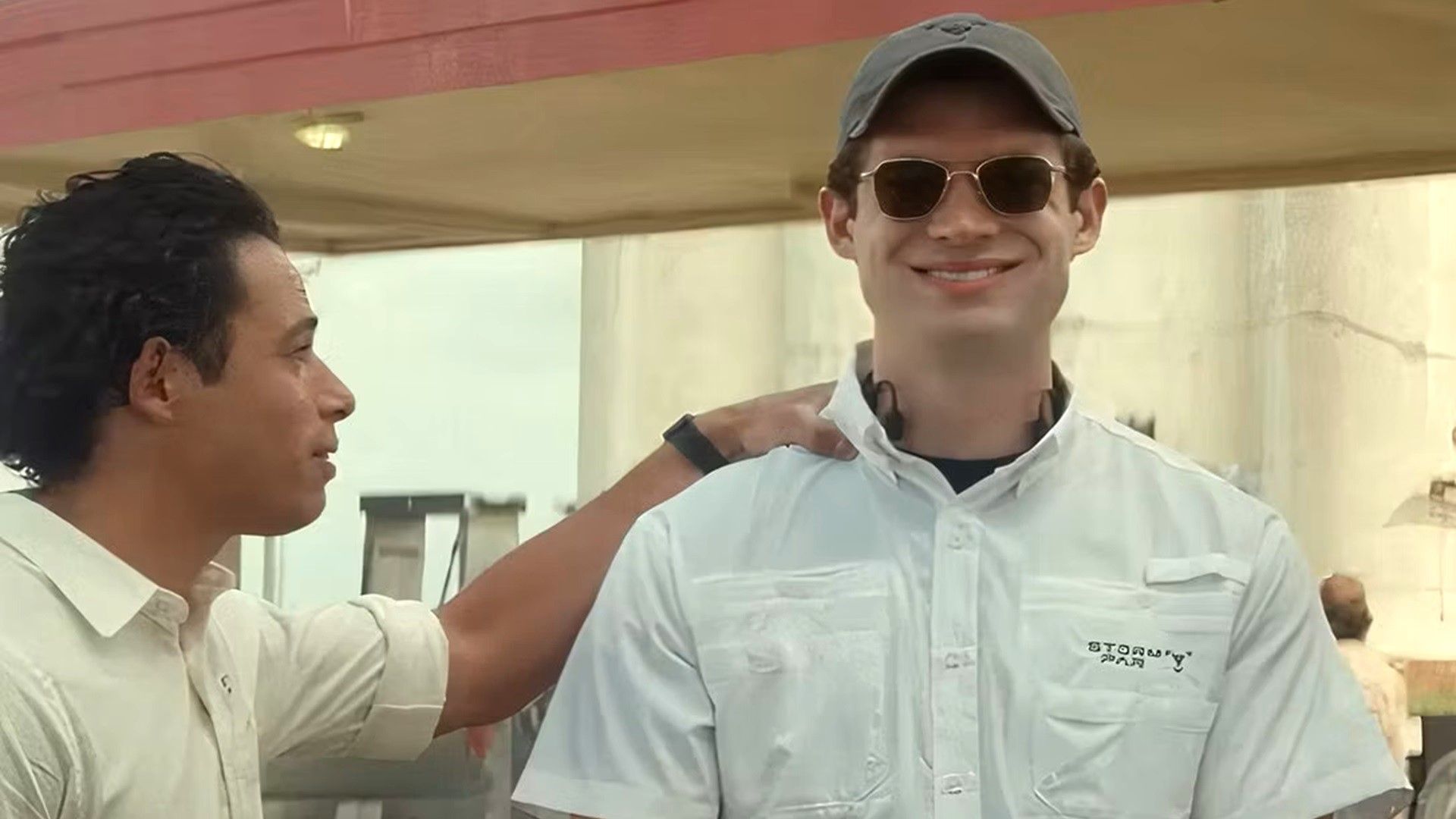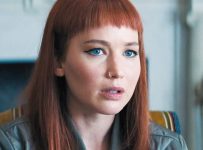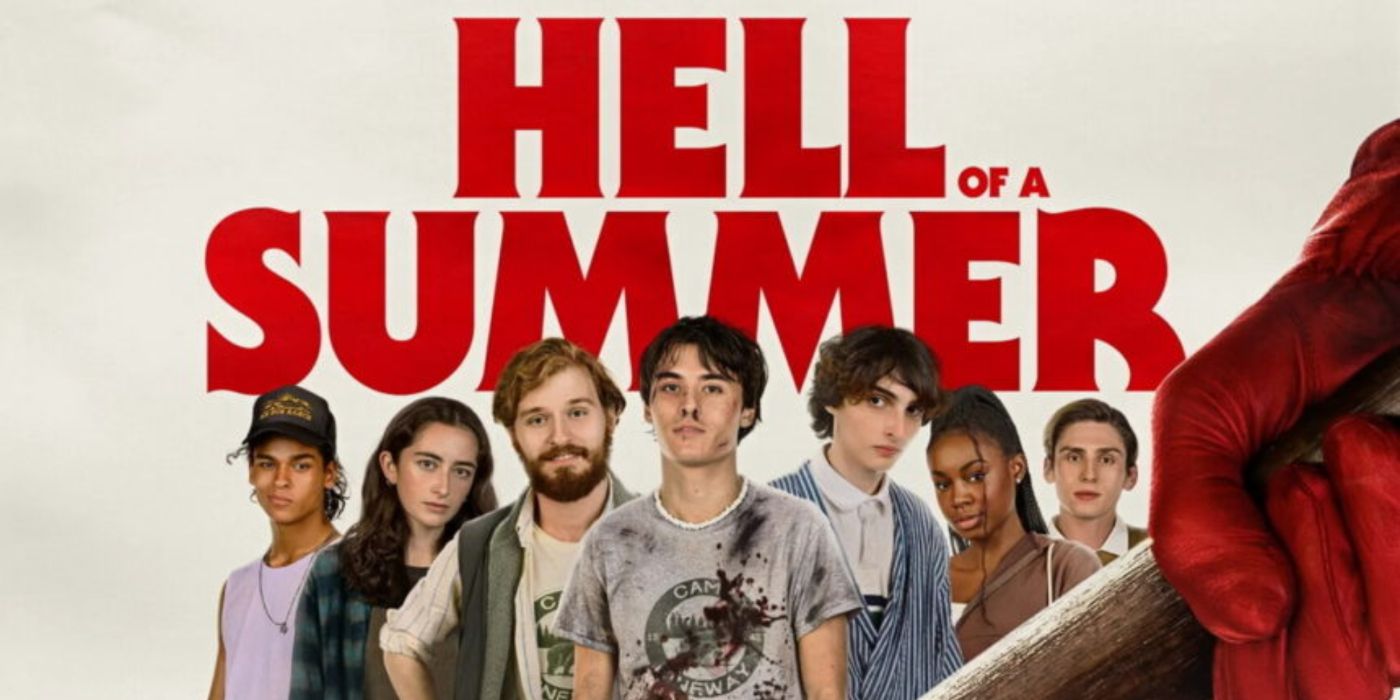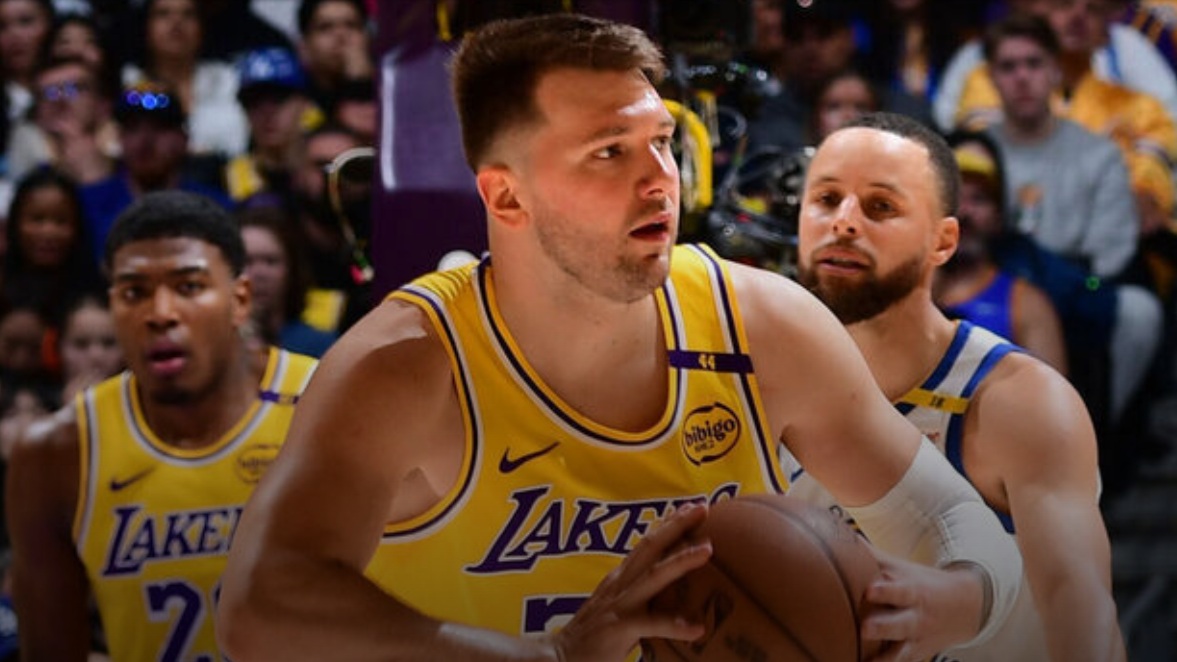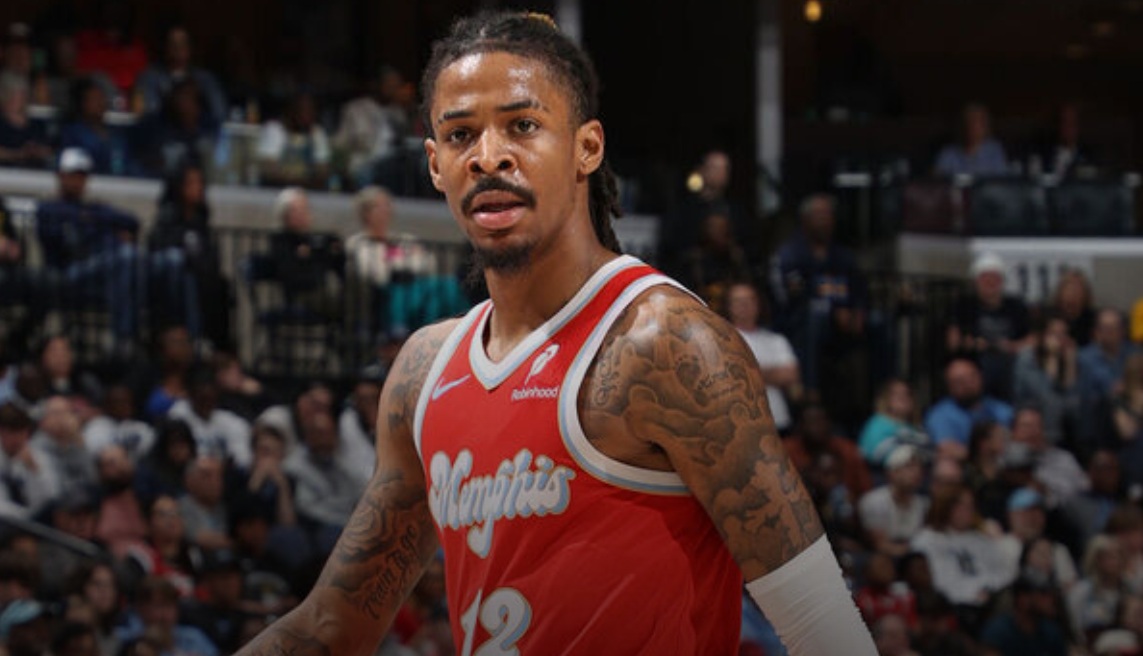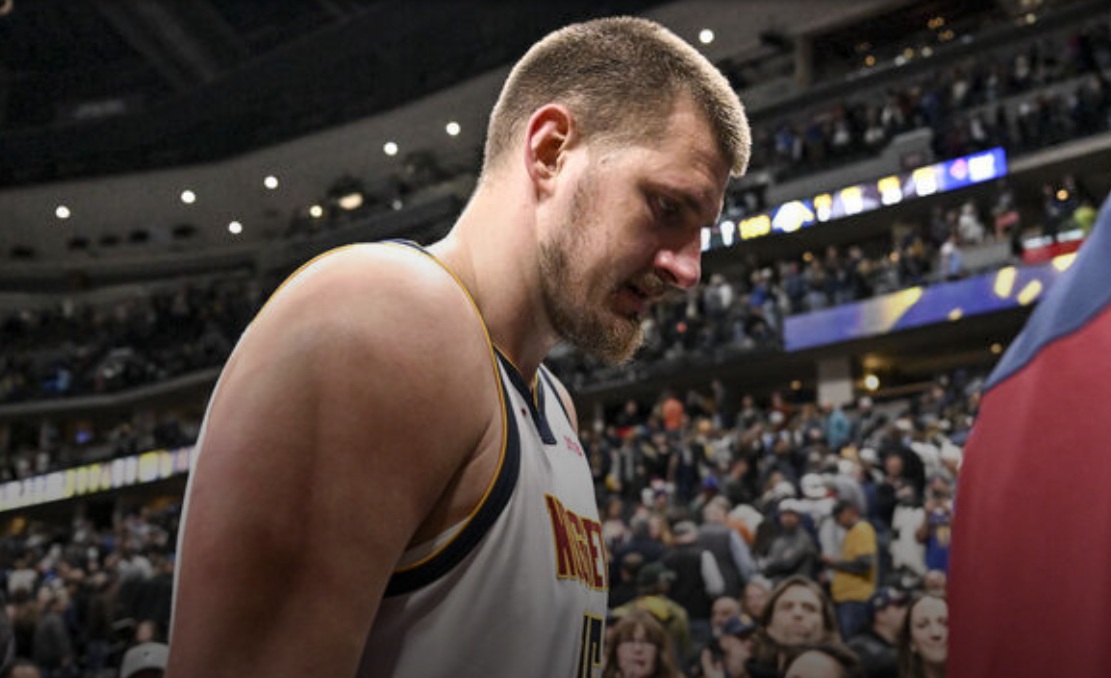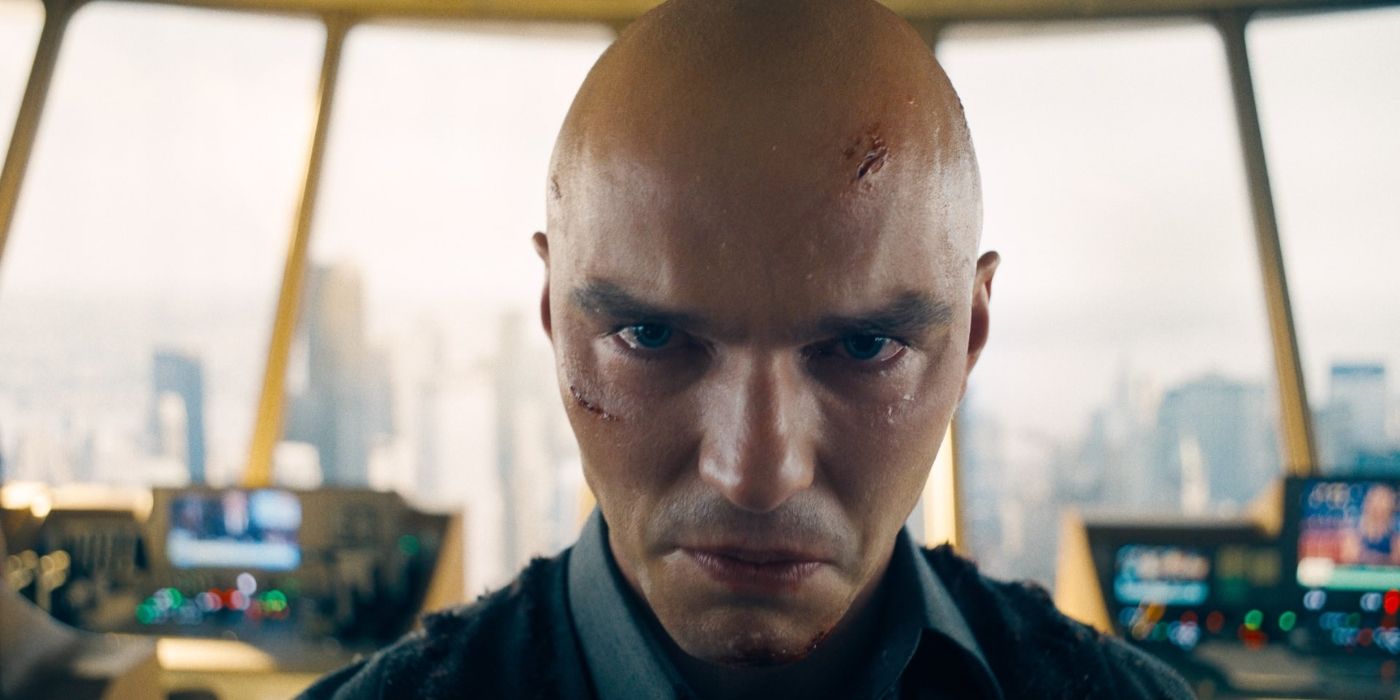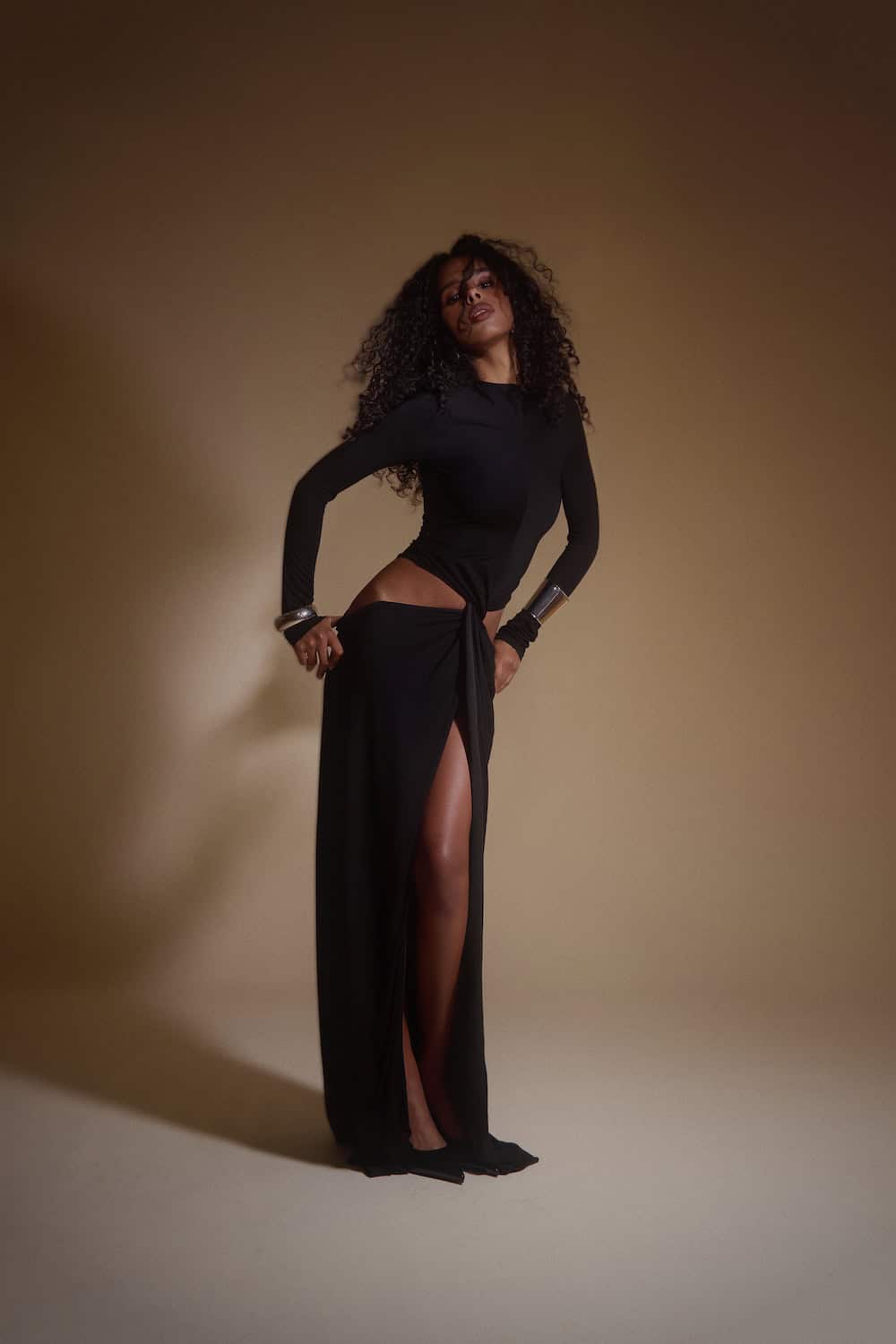I had a lot of scenes they cut out of the movie. I really liked those scenes because there were a lot of emotion, and sometimes we saw the perpetrator. In one scene, I gave an order to kill someone, and I really, as an actor I’m sad that these scenes are cut out. But I really understand his decisions for his view and his vision, not to show this person as a perpetrator. [The audience] cannot say, “OK, it’s not me.” I really like that. And even the decision at the end of the movie, in the script, it was this throwing up, and then we go to the present day to the documentary thing, but then he comes back to him. I was sitting next to Sandra in this little cinema in Leipzig, with her dog, it’s her dog in the movie, and we said immediately, “Wow,” because this was a genius cut. To watch the movie and to realize his vision works, and that he made a lot of great decisions, was really impressive.
That point of not allowing distance from a perpetrator rings in my ear about how an actor has to empathize with a character to almost inhabit it. Is that different when playing a character like yours?
Absolutely it’s different, because it’s not a biopic. I had a lot of conversations together with Sandra and Jonathan, and we had different ways to our characters. For me, the challenge was, that he is the commandant and he is the perpetrator, but to create a different view to seem as a father. I need to connect him with my emotional archive, and that was sometimes hard. When I watched the movie for the first time, I realized that it could be me. I think this was important, that I realized this could—not that we are all Nazis—but that this could be us. So, the decisions we make define us, and they are human beings doing terrible things to other humans. But I had to create a human and not the original biography of Rudolph Höss.
You did read about him?
I read some stuff, but Jonathan said … his preparation and investigation was a lot of years, and really, really precise. But he also said, “You will play this character. Who are you?” And that was important to find a way to combine this.
This emotional archive, you mean.
Yes. How he is when he’s afraid or when he’s thinking about it. Or, sometimes, love with his kid or with his horse. When he said goodbye, we had a lot of variations. Three hours, a night shoot. I had to cry; I had to be tough, cool, different variations. This was me sometimes, but the clothes were different, and the situations were different. But sometimes, it’s important to protect myself from this. If I have a theater play, and now I’m playing Macbeth, it’s a murderer, it’s a perpetrator, a psycho in a way. And I had to combine my emotional archive with that character, too, so that we can believe them and we can decide as an audience, “OK, what I’m seeing now, what’s my interpretation?” I cannot say I only hate this person because then there is a distance. It was important not to have a distance but to have a big human connection.
You can view the original article HERE.

